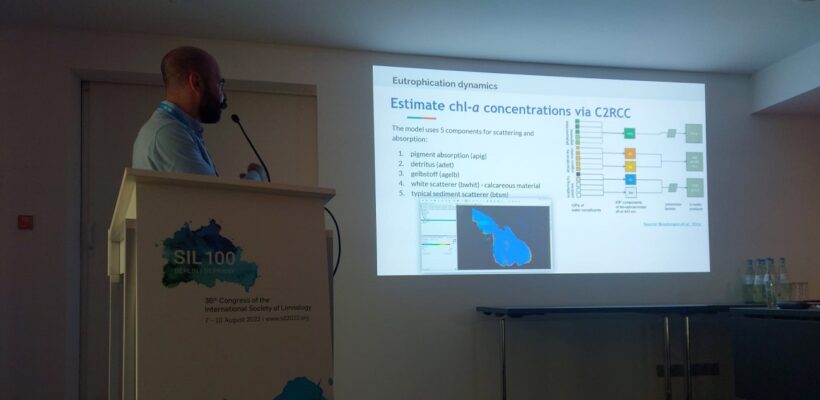
Professor Kazanjian Attends 36th Congress of the International Society of Limnology
2 min readBERLIN, Germany — On August 8, American University of Armenia (AUA) Assistant Professor and PONTOS project researcher Dr. Garabet Kazanjian participated in the 36th Congress of the International Society of Limnology (SIL 2022) on the topic “The next 100 years — Sensing and Safeguarding Inland Waters.” At SIL 2022, Dr. Kazanjian gave a research presentation on the assessment of chlorophyll concentration and eutrophication dynamics within the PONTOS project. The presentation was followed by an active discussion on questions related to enhancing remote sensing capabilities and nature-based solutions to improving the water quality of Lake Sevan. Productive discussions with researchers from scientific institutions in Germany, Netherlands, France, Canada, and other countries, as well as the Berliner Wasserwerk, established fertile ground for future collaboration on the topic.
Founded in 1922 by visionaries August Thienemann and Einar Naumann, the International Society of Limnology (SIL) established the science of inland waters, encompassing lakes and ponds, streams and rivers, surface and groundwater, and wetlands. This comprehensive undertaking reflected the founders’ broad perspective and set the course to consolidate limnology as a systems science drawing on physics, chemistry, biology and increasingly the socioeconomic sciences, while recognizing the value of combining curiosity-driven research and analysis of real-world problems. Most notably, however, SIL and its conferences stand out as being genuinely international in nature, aspiring to represent science and people from all continents, a hallmark of the society from its inception at the 1922 inaugural congress in Plön, Germany.
Copernicus-assisted environmental monitoring across the Black Sea Basin-PONTOS is a 30-month project funded by the European Union’s ENI CBC Black Sea Basin Programme 2014-2020. PONTOS makes information about the Black Sea environment from the EU Copernicus Earth Observation platform accessible to scientists, policymakers, citizens, and other relevant stakeholders. It utilizes information technologies to automatically retrieve Copernicus products, couples them with national or regional infrastructure for data acquisition and processing, and provides monitoring services for the Black Sea and surrounding environment in a transboundary, standardized, and homogenized manner. The environmental monitoring system developed is tested in pilot sites across Armenia, Greece, Georgia, and Ukraine.
Founded in 1991, the American University of Armenia (AUA) is a private, independent university located in Yerevan, Armenia, affiliated with the University of California, and accredited by the WASC Senior College and University Commission in the United States. AUA provides local and international students with Western-style education through top-quality undergraduate, graduate, and certificate programs, promotes research and innovation, encourages civic engagement and community service, and fosters democratic values.
